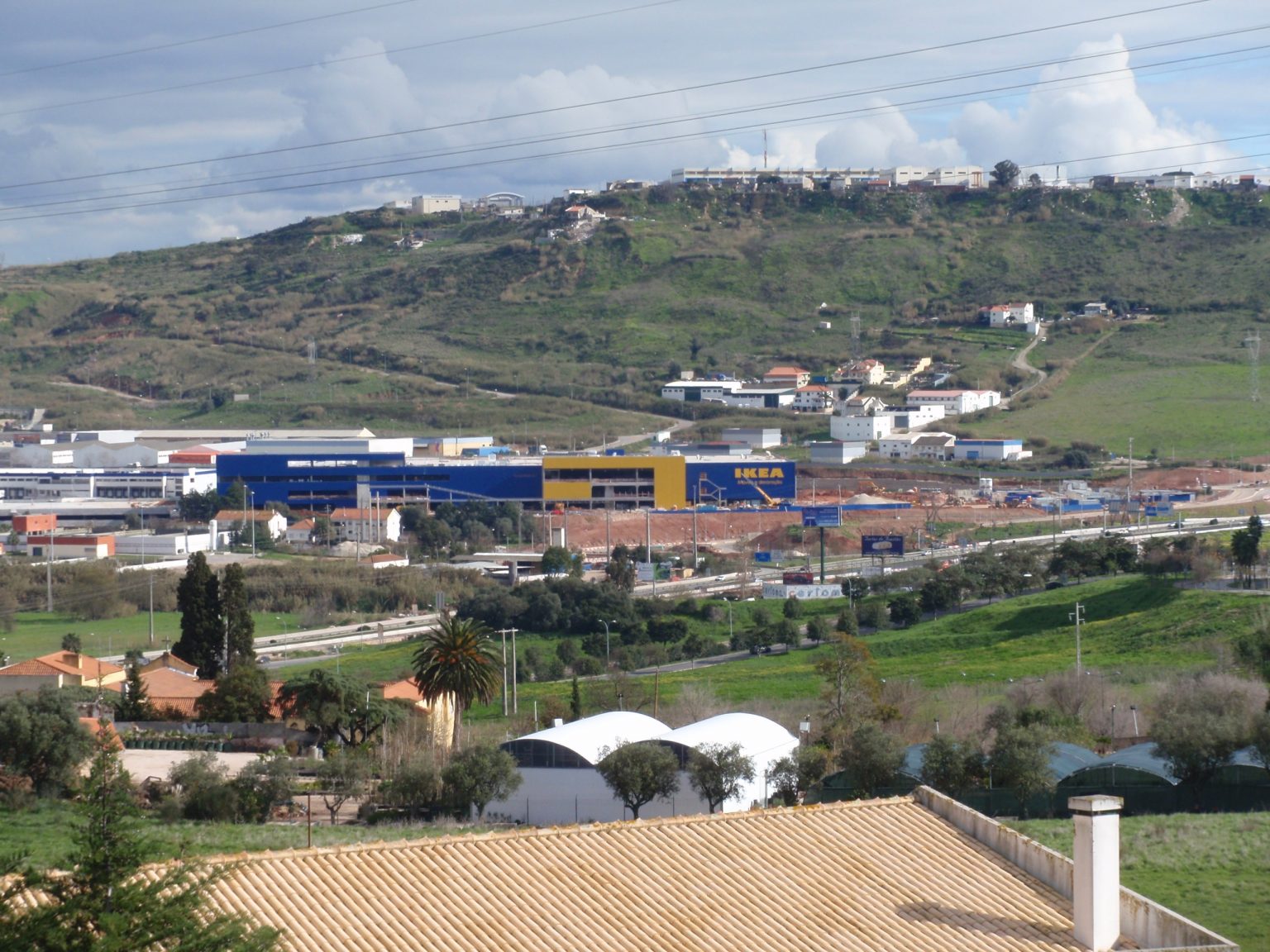This article was published on 28 May 2020 on the site of the Transform!Europe Network.
Preamble
The health crisis that the world is facing reveals a structural crisis that already existed and that the EL has consistently exposed. The EL took on the task of proposing an alternative model for this Europe following the explosion of Covid-19. For this, a platform has been created and we are working very actively to develop it as quickly and as best as possible, focusing not only on solutions for the actual crisis, but also, more in the long term, for a public, social and ecological transformation of the economy. It is important to rethink the role of European and global institutions, to ensure investments that go in the direction of a Social Green New Deal, to protect workers and for a tomorrow focused on human needs and not just profit.
The situation caused by the COVID-19 pandemic is a shock for all humanity. Drastic measures have been taken in almost all countries to prevent people from contracting the disease and to contain the pandemic. While, indeed, every effort must be made to protect the population, these measures must be coordinated, but an effective European coordination by its institutions is still absent as well as a global response. In this way, the countries most affected are left on their own. The risk is therefore that the politics in general, with the the Stability Pact in particular, will limit solidarity among countries in coping with economic crisis by leading to the dichotomy privileged countries – countries already hit by austerity in the past.
The spread of the COVID-19 virus also has significant consequences for the economy: it is accelerating the crisis of neoliberal globalisation as a hegemonic model of society, accelerating the restructuring process of capitalism.
The coronavirus pandemic clearly shows the failure of the prevailing neoliberal economic and social model. As a consequence of the neoliberal austerity policy of privatising public services, healthcare systems are not able to cope with the public needs in a pandemic.
The Party of the European Left (EL) demands immediate measures to combat the consequences of the crisis and a radical change of policy, opening a new path for the development of the society, placing the people at its core.
Comprehensive activities concerning five poles are necessary. First and foremost, everything must be done to protect the people. A public, social, and ecological transformation of the economy is urgently needed. Democratic institutions and rights must not be questioned by the measures undertaken in order to combat the crisis: on the contrary, in difficult times like these, democracy and civil rights have to be defended and expanded. There is no other answer than international solidarity to the global dimension of the crisis: now it’s the time for a new initiative for disarmament and a policy of détente.
Protection of the population
Every effort must be made to improve the operational capacity of healthcare systems.
We need extra resources for public health systems, as well as convergence of standards in all countries in terms of personnel, facilities and equipment in the public hospitals and prevention systems, and an increase in the capacity for production of health protection tools. And it is also imperative to acquire, on a continent-wide scale, European public services, efficient and coordinated with the rest of the world. We call for the immediate creation of a European Health Fund funded by the ECB with 100-year securities that are not negotiable on the markets and the possibilities to obtain more public services by abolishing Growth and the Fiscal Compact.
The population must be protected, both socially and economically. Thousands of workers and employees are at risk of losing their jobs and their incomes, or already did. The virus hits the weakest hardest: those most affected are people working in poorly paid and precarious jobs, particularly cleaning staff and carers.
Although governments across Europe are asking employees to work from home, this does not apply to everyone and in too many cases it is a privilege. Workers in essential services or essential production lines, who have to be present in the workplace, need guaranteed protection against the spread of the virus.
We demand an economic rescue plan for workers and their families, including all precarious workers, the unemployed and non documented, migrants and refugees or similar. In case of income losses, financial compensation is needed. Rents and mortgages need to be suspended for those who cannot pay them because of their income loss. We oppose any attempt to worsen working conditions, such as the suspension of collective agreements and the reduction of workers’ rights. The systems of social protection, salaries and pensions should be adapted to the highest level we have in Europe.
Women are mostly affected by precarious working conditions, in particular nurses, cashiers or cleaners. The situation of women migrants in the camps or also in the host countries is especially hard.
Women should not pay the highest price for this crisis: we need a concrete plan focusing on the protection of all women (workers, unemployed, migrants), especially when victims of any form of violence (particularly domestic violence).
We strongly oppose the pressure by the economic and industrial world onto decision-makers to end the lockdown measures and reopen even non-essential productions without guaranteeing the basic conditions for workers’ safety to avoid the increase of infections.
We need urgent actions not only for big companies, but in particular for small and medium-sized businesses and self-employed workers. Financial support for businesses must be aimed at maintaining employment levels, respecting wages, working hours and duties. In order to deal with the problems of production remodelling, the reduction of working hours for equal pay shall be encouraged.
Economic recovery and ecological-social transformation
As an immediate measure, we need more investment in public services.
Firstly, we need to put an end to the austerity policies by completely abolishing the Stability and Growth Pact. Europe must leave this instrument behind, as it is used to impose austerity on public spending, thus undermining healthcare and other public services to the detriment of the population, who are now suffering the consequences of these policies in the coronavirus crisis.
The European Central Bank (ECB) should be the instrument to guarantee the huge resources necessary to face the immense social, economic and medical emergency underway. The ECB’s money should be used to help the people to emerge from the medical health emergency and to combat the consequences of the crisis, not to maintain the rate of return on capital. The ECB must assume its responsibility for economic development and must take all the measures necessary to avoid financial speculation. It is a precondition to ensure that national actions can be coordinated and that a strong solidarity-based system will be established to deal with the coronavirus crisis. Both the ECB and national banks should be used to increase spending on social services and protection of the population.
Furthermore, the ECB must finance a European investment plan, capable of boosting employment and guaranteeing a change in the environmental and social model of production and the economy. We need a programme of productive reconstruction including the relocation of strategic industries. We demand a European Recovery Fund, financed through bonds issued by the Fund itself or by the European Investment Bank and acquired by the ECB. At the same time, the European Stability Mechanism (ESM), which represents an unnecessary and harmful way of intervening in the public budgets of the various European countries, should be abolished.
The German Constitutional Court questioned the competencies of both the ECB and the court of Luxemburg, and ignores the economic requirements we need for the European development. Its decision for us represents no more than the flip side of austerity and of the neoliberal project. It is functional to discourage and avoid solidarity actions, and to undermine the path to any project for a social Europe.
We propose a general moratorium of the public debts. Furthermore, we propose a European conference about the public debt and an open discussion about the criteria for the classification of debt.
This crisis of the COVID-19 shows that the market does not take care of the needs of the citizens at all. It is not even able of ensuring the minimum necessary for life. We want a relaunch of the public role, lost during the period of privatization, in all sectors: the credit system, strategic productions, research system and services. We need an economic model focused on public welfare, and the immense accumulation of capital by the few must be stopped. For the many, not just for the few!
Financing the increase in social spending and in investing in the transformation of industry, requires a policy of fiscal justice: we demand a new tax collection model that taxes large sources of capital and wealth, based on tax progressivity criteria, and ends tax havens inside and outside the EU. A tax on GAFAM (Google, Apple, Facebook, Amazon, Microsoft) and on NATU (Netflix, Airbnb, Tesla, Uber) is necessary.
The crisis provides sufficient reasons to question our socio-economic model and to radically change politics. A change is needed also because we face enormous ecological challenges such as climate change, which have a very wide-ranging social impact. For the Left, the connection between ecological requirements and social needs is crucial. We need a green transition in industry, but we must also protect the workers and employees affected by this process. A “Just transition”, as promoted by the International Trade Union Confederation (ITUC), aims at combining ecological transition with social protection. We need a new industrial policy with new concepts of energy and mobility. We need a plan for the environmental and social reconversion of the economy that ensures full and good employment and protects everyone’s rights, starting from gender equality. From the point of view of the Left, a new industrial policy must include direct participation by the workers and, therefore, must be combined with economic democracy.
Democracy
EL recognizes that COVID-19 crisis can threaten democracies and the risk that irresponsible action lead to the emergence of extreme right and its complete unsolidarity rhetoric. Against the attempts to take advantage of the emergency situation in order to limit or suspend our rights, the EL defends democracy and its institutions. For example, the parliaments should remain in function and not suspended, as it is the case in Hungary.
We know that very stringent measures are needed to contain the pandemic. But we have to be vigilant and make sure that restrictions of freedom deemed necessary to stop the progress of the pandemic must remain exceptional measures.
The EL also firmly rejects any attempt to misuse the corona pandemic for xenophobic or nationalist demagogy.
Disarmament and peace
The unconditional commitment to peace and disarmament is one of the essential elements of the politics of the Left. Without peace there is no future for humankind.
The coronavirus emergency should be taken as an opportunity to put disarmament and peace back to the centre of policy making. Military spending must be reduced considerably in favour of healthcare and meeting social needs. It is time for an initiative for a new policy of détente.
The war manoeuvre “Defender” was stopped by the coronavirus outbreak but it has not been cancelled altogether. Therefore, we must continue and intensify our resistance against those dangerous military exercises. NATO is not an organization defending the interest of the Europeans. With its aggressive activities, it is a dangerous organisation. NATO has to be dissolved in favour of a new collective security system, which also includes Russia.
European and international solidarity
We need a social way out of the crisis that goes beyond the current model of European integration. Our goal is a social way out of the crisis. In order to do so, any proposal has to encompass several strands:
– Europe shall diversify its international relations with fair commercial relations based on mutual benefit, not competition for profit.
– The promotion of an all-European cooperation process including Russia.
– The development of a model of socially-advanced states characterized by a “horizontal” solidarity and cooperation and with a productive and sustainable programme of reconstruction targeting at achieving food sovereignty through greater support and innovation for agriculture.
– Support to the WHO, especially financially, to play a more effective role in such crises.
– Defense of the UN threatened by the US administration in the interest of multilateralism.
– This is not just a task for Europe but for the whole world: the countries in the Global South need financial support to protect their populations and to improve their healthcare systems.
– We need to assure that refugees and migrants are treated according to the international and European law, that their human and civic rights are definitely respected, their life in not jeopardized either by illegal detainment, push-backs, deportations hidden from the public eye, or by lack of healthcare, unproper accommodation, unacceptable living conditions, racist and xenophobic reactions, exploitation, hate speech, acts of violence. We have to focus on their proper education, decent and equal working opportunities, personal thriving and social integration.
– A humanitarian response to the situation of millions of human beings all around the world who have to leave their homes to escape from misery, hunger, disease and war and who will now see their situation worsen.
– The world must remain united and the key to overcome the crisis is international solidarity. There is a particular need to increase solidarity with the peoples of the Middle East, Africa, Asia and Latin America, who are in much greater danger of being severely affected by the COVID-19 pandemic.
– We stress a new emphasis on the cultural and value-led principles that allow the full development of the human being in an egalitarian and ecologically-protected society.
From this perspective, the Party of the European Left calls on all the organisations from the progressive, ecological and leftist forces, and especially the one participating in the European Forum to be prepared to work together to develop a joint progressive response to the current crisis in the interests of the people.










